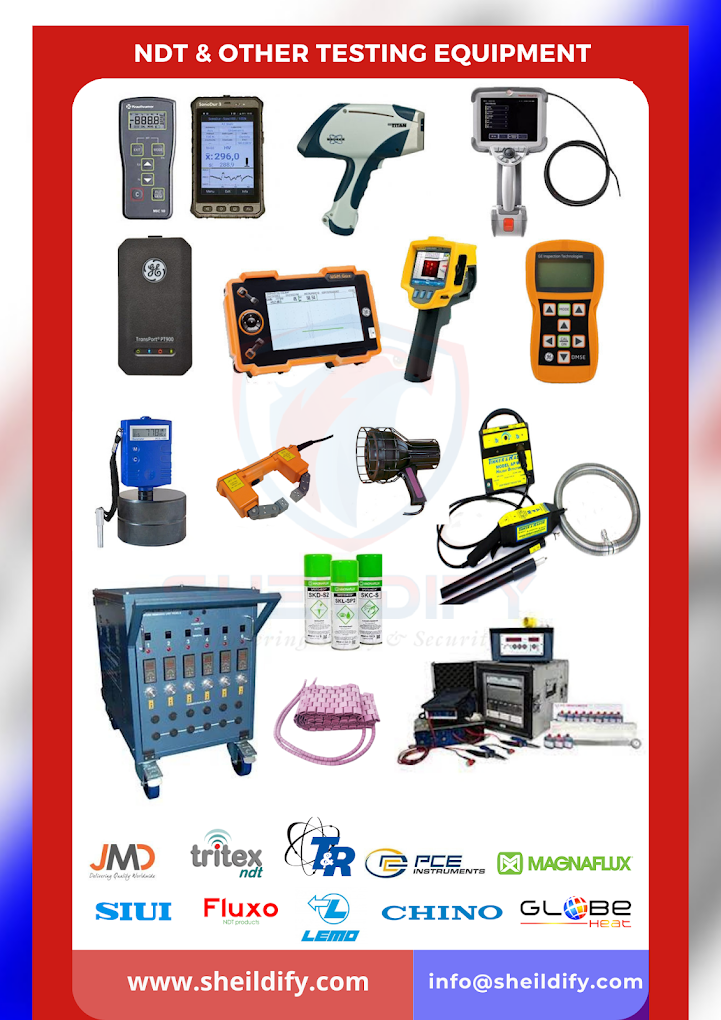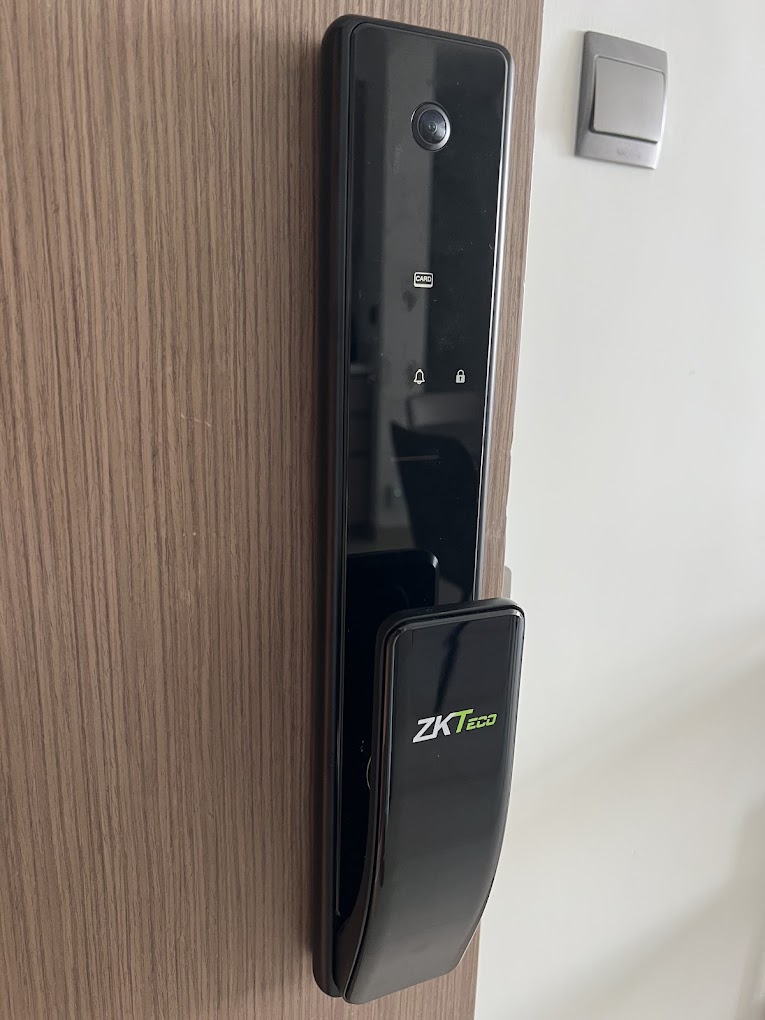Sheildify Security Equipment Trading LLC
Abu Hail - Dubai
Products & Services:
Supplier of CCTV Systems, Biometric Time & Access Control, Data & Networking, Parking Gate Barriers More..
Since : 2020
Abu Hail - Dubai
Products & Services:
Supplier of CCTV Systems, Biometric Time & Access Control, Data & Networking, Parking Gate Barriers More..
Since : 2020
Power outages and voltage fluctuations are common issues that can disrupt both business operations and personal tasks. Line Interactive UPS systems offer a reliable solution to these problems by providing power backup and regulating voltage. These systems are ideal for small to medium-sized businesses, home offices, and even personal use, ensuring that your devices continue running smoothly in the event of a power failure. Line Interactive UPS Dealers are specialized providers of these systems, offering products and services tailored to various customer needs. In a tech-driven city like Dubai, these dealers play a crucial role in keeping both commercial and residential power systems stable.
Line Interactive UPS Dealers are suppliers who provide uninterruptible power supply systems with line-interactive technology. Unlike basic offline UPS systems, line-interactive UPS systems offer additional features like automatic voltage regulation (AVR) to manage minor fluctuations without switching to battery power. This makes them highly efficient and extends the battery life by reducing unnecessary battery use. The main role of these dealers is to offer a range of line-interactive UPS systems, provide expert guidance, installation, and maintenance services to ensure that customers have a smooth and uninterrupted power experience.
· Sheildify Security Equipment Trading LLC
G01 - Khalifa BA Balila Building Abu Hail,
PO BOX-39701 Dubai, United Arab Emirates Phone: +971 58 559 6050
· Emirates Industrial Equipment LLC
Dubai Investment Park, Dubai, UAE
+971 4 885 5555
· Al Harithy Company for Trading and Contracting
Al Quoz Industrial Area 1, Dubai, UAE
+971 4 340 0000
· Al Futtaim Engineering
Dubai Festival City, Dubai, UAE
+971 4 204 1111
· Gulf Safety and Security
Al Quoz Industrial Area 3, Dubai, UAE
+971 4 340 0000
· Al Masaood Power Division
Dubai Investment Park, Dubai, UAE
+971 4 885 5555
· Al Shirawi Electrical and Mechanical Engineering
Dubai Investment Park, Dubai, UAE
+971 4 885 5555
· Al Ghandi Electronics
Sheikh Zayed Road, Dubai, UAE
+971 4 340 0000
· Al Naboodah Group Enterprises
Dubai Investment Park, Dubai, UAE
+971 4 885 5555
· Al Jaber Group
Dubai Investment Park, Dubai, UAE
+971 4 885 5555
Cables are essential components in various industries, providing the infrastructure for electrical power, data transfer, and communication systems. From residential projects to industrial applications, cable dealers play a vital role in ensuring the availability of high-quality cables that meet specific standards and requirements. In this guide, we will explore what cable dealers offer, the types of cables available, and key factors customers should consider when choosing a dealer. Additionally, we will address some of the most frequently asked questions about cable dealers.
1. Power Cables
·
Low Voltage Power Cables: Used in
residential and commercial applications for transmitting electricity at low
voltage levels.
·
Medium Voltage Power Cables: Used for
distributing electricity in industrial settings or power plants, typically from
transformers to substations.
·
High Voltage Power Cables: For
long-distance electricity transmission, typically used in substations and
large-scale power distribution.
2. Communication Cables
·
Coaxial Cables: Used for transmitting
television signals, internet, and other forms of communication, mainly in
telecommunications and cable TV industries.
·
Ethernet Cables (Cat5, Cat6, Cat7): Used in
networking for connecting computers, routers, and switches, ideal for data
transmission.
·
Fiber Optic Cables: High-speed
data transmission cables using light signals, commonly used in broadband
internet, telecommunications, and data centers.
3. Instrumentation Cables
·
Control Cables: Used in automated control
systems and instrumentation to transmit low voltage signals for controlling
various equipment and machinery.
·
Shielded Instrumentation Cables: Designed to
protect against external electrical noise, ideal for sensitive instrumentation
and communication systems.
4. Fire Resistant and Fire Retardant Cables
·
Fire Resistant Cables: Maintain
functionality during fire for critical circuits like emergency systems, fire
alarms, and smoke detectors.
·
Fire Retardant Cables: Designed to
prevent the spread of fire, used in public buildings and safety-critical
applications.
5. Building Wires
·
PVC Insulated Wires: Commonly used
in electrical wiring for homes and buildings, featuring PVC insulation for
flexibility and durability.
·
Flexible Cables: Used for portable equipment,
machines, or household applications requiring flexibility and durability.
·
XLPE Cables (Cross-Linked Polyethylene): Known for
higher temperature resistance, these cables are used in both low and high
voltage applications.
6. Telecommunication Cables
·
Twisted Pair Cables: Widely used
in telephony and Ethernet networks, these cables consist of twisted pairs of
wires to reduce electromagnetic interference.
·
Jelly Filled Cables: Used in
telecommunication networks for underground applications, offering protection
against moisture.
7. Specialty Cables
·
Submarine Cables: Specially designed for
underwater use, often used for transmitting data or power between continents or
across bodies of water.
·
Solar Cables: Designed for solar panel
connections, resistant to UV radiation and weather conditions.
·
Automotive Cables: Used in
vehicle wiring, offering high resistance to heat, oil, and vibration.
8. Heavy Duty Cables
·
Mining Cables: Highly durable cables designed
for harsh underground and surface mining environments.
·
Welding Cables: Flexible cables used to supply
power to welding tools, resistant to high heat and abrasion.
9. Marine and Offshore Cables
·
Marine Cables: Designed for use on ships and
offshore platforms, resistant to corrosion, moisture, and extreme environmental
conditions.
1. Quality of Cables
Cable dealers are specialized suppliers who provide a wide range of cables for various applications, including electrical, telecommunications, industrial, and consumer electronics. Their main responsibility is to offer reliable and safe products to meet the needs of different industries. Cable dealers source their products from manufacturers and ensure that they comply with safety regulations and performance standards.
Cable dealers provide a wide variety of cables, including electrical cables,
data and communication cables, fiber optic cables, coaxial cables, control
cables, and flexible cables. These cables serve different purposes, from
transmitting electrical power to enabling fast data communication in
industrial, commercial, and residential applications.
Choosing the right type of cable depends on the specific requirements of
your project. Factors such as the intended application, voltage requirements,
length, and environmental conditions should be considered. It's always a good
idea to consult with a cable dealer or an expert to ensure that you select the
correct cable for your needs.
Reputable cable dealers provide cables that are certified and meet safety
standards, such as ISO and IEC certifications. It's essential to verify that
the cables meet the necessary safety regulations to ensure they are safe for
use and comply with industry standards.
Yes, many cable dealers offer custom cable solutions to meet specific
project requirements. These custom cables can be designed in terms of length,
insulation material, and performance specifications. If you have unique cable
needs, you can inquire about customization options from your dealer.
Some cable dealers offer installation services, while others may work with
third-party contractors to provide installation support. It's important to
confirm whether the dealer you choose provides installation services or if
you'll need to hire a separate contractor for the job.
Fiber optic cables offer several advantages, including high-speed data transmission,
resistance to electromagnetic interference, and the ability to transmit data
over long distances with minimal signal loss. These features make fiber optic
cables ideal for telecommunications, internet services, and industrial
applications.
To ensure the quality of the cables, check if the dealer provides
certifications and adheres to industry standards. Look for well-established
brands and manufacturers with a reputation for producing high-quality products.
Additionally, reading reviews or testimonials from previous customers can help
gauge the dealer's reliability.
Many cable dealers offer bulk discounts for large orders or long-term
contracts. If you're purchasing cables for a significant project or require
them in large quantities, inquire about potential discounts or pricing options
that the dealer may offer.
The lifespan of a cable depends on its type, usage, and environmental
conditions. It's essential to inspect cables regularly for signs of wear and
tear, including fraying, cuts, or corrosion. Cables used in harsh environments
may need more frequent inspections and replacements.
Return policies vary from dealer to dealer. Before making a purchase, it's
important to ask about the dealer's return or exchange policy in case the
cables do not meet your needs. Some dealers may allow returns within a
specified timeframe, while others may have strict guidelines.

Dubai, Abu Hail

Dubai, Abu Hail
Latest Customer Reviews
"Best place to buy security systems in Dubai"